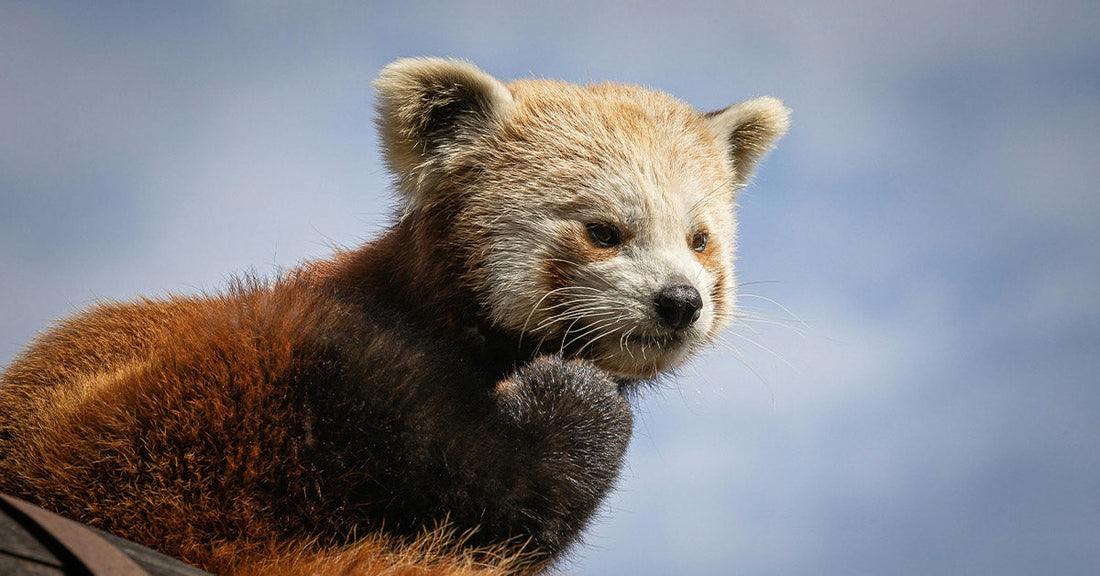Hotel Puts Endangered Red Pandas in Danger for Guest Entertainment
Matthew Russell
In a country known for its breathtaking wildlife and rapid tourism growth, one hotel in Chongqing, China, pushed the boundaries of animal-themed hospitality too far.
The Lehe Ledu Liangjiang Holiday Hotel found itself at the center of a storm after videos emerged of red pandas being led into guest rooms to serve as living alarm clocks.
The practice wasn’t a secret. Room listings on major booking platforms advertised the “red panda wake-up call” experience, with prices ranging from $278 to over $400 per night. At 9:30 a.m., a staff member would guide one of four red pandas into a guest’s room. Guests could feed them, touch them, and even cuddle them on the bed — all depending, the hotel claimed, on the red panda’s mood that day, according to Global Times.

A hotel in Chongqing used red pandas as live wake-up calls.
Viral Fame Brings Scrutiny
The service attracted a rush of bookings and glowing online reviews. Social media videos showing tourists—often with young children—feeding and petting the animals went viral.
One particularly popular clip posted by British YouTubers Reanne and Ben of the “On Tour With Dridgers” channel showed them stroking a red panda that had climbed onto their bed, an apple slice clutched in its paws.
“I can’t believe I’ve got a panda on my bed,” Reanne said in the clip, which quickly garnered global attention, The Independent reported.
But that same exposure triggered concern. Critics questioned the ethics of using an endangered and naturally shy species as a tourist gimmick. Wildlife experts warned of the stress these encounters likely inflicted on the animals — and the risks posed to humans, especially children.

The animals were brought in daily for entertainment.
Endangered and Exploited
Red pandas are listed as endangered by the International Union for Conservation of Nature. In China, they’re under second-class national protection, making them legally off-limits for non-scientific close interaction with the public. While the hotel insisted the pandas were vaccinated, cleaned, and cared for, experts cautioned that none of those steps negated the risks.
Zoologist Deng Changlin told Sixth Tone that vaccinations only cover a limited number of pathogens. Close contact still poses a danger of disease transmission and unpredictable behavior. In a past incident at a different wildlife-themed hotel, a red panda bit a guest — a reminder that these are still wild animals.
Sun Quanhui of the World Animal Protection organization told the Global Times that the practice is exploitative and potentially abusive. Red pandas, he noted, are highly sensitive and naturally reclusive. Forcing them into unfamiliar rooms filled with people and noise can trigger severe stress responses that compromise their mental and physical well-being.

Red pandas are shy, solitary animals easily stressed by humans.
Official Response and Legal Implications
Following the backlash, the Chongqing Forestry Bureau launched an investigation and swiftly ordered the hotel to halt the wake-up service. They warned that continuing such activities could lead to prosecution or financial penalties, People reports.
Chinese law allows animals to be used in displays or performances only if safety protocols are followed and animal welfare is protected. However, these guidelines are vague and often go unenforced, creating loopholes that businesses exploit.
The red panda-themed experience was not the only such attraction at the hotel. Other animal-themed lodgings featured ring-tailed lemurs, another endangered species. Although those encounters were outdoors, they still raised similar concerns, Sixth Tone reports.

Red pandas are endangered and deserve protection, not exploitation.
Profitable Popularity Versus Protection
This incident highlights the tension between tourism revenue and ethical animal treatment. As China’s “pet economy” and fascination with exotic animals grows, businesses are offering ever more immersive wildlife encounters — from giraffe breakfasts to orangutan photo ops. But at what cost?
Sun warned that showcasing wildlife as playthings blurs public understanding of conservation. “Wild animals are not props,” he said. “They are sentient beings that deserve respect, not exploitation.”
The hotel’s panda wake-up calls may have delighted paying guests and boosted online engagement, but for many observers — including scientists, conservationists, and even animal lovers — it was a wake-up call of a different kind.
Click below to make a difference.

